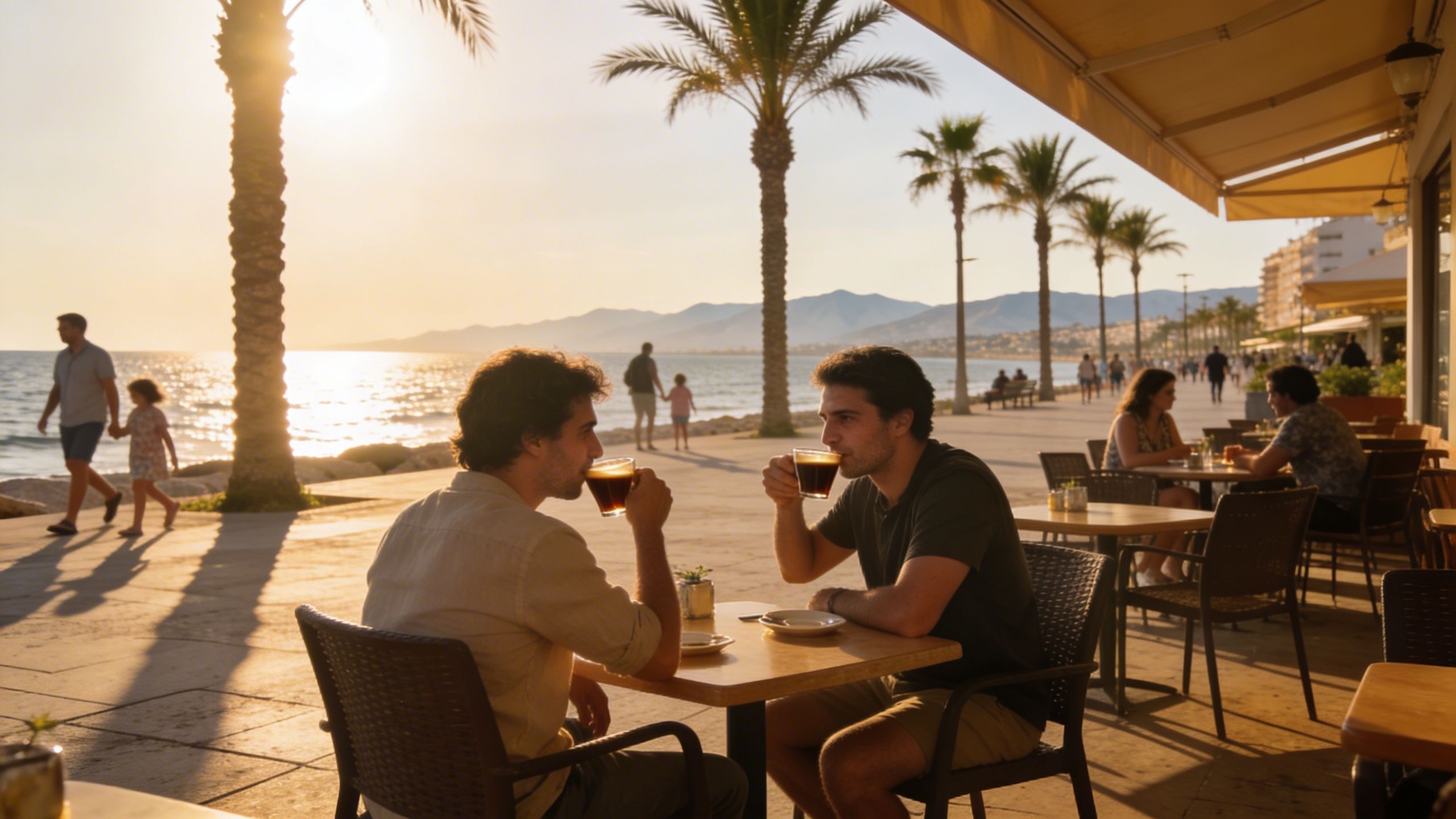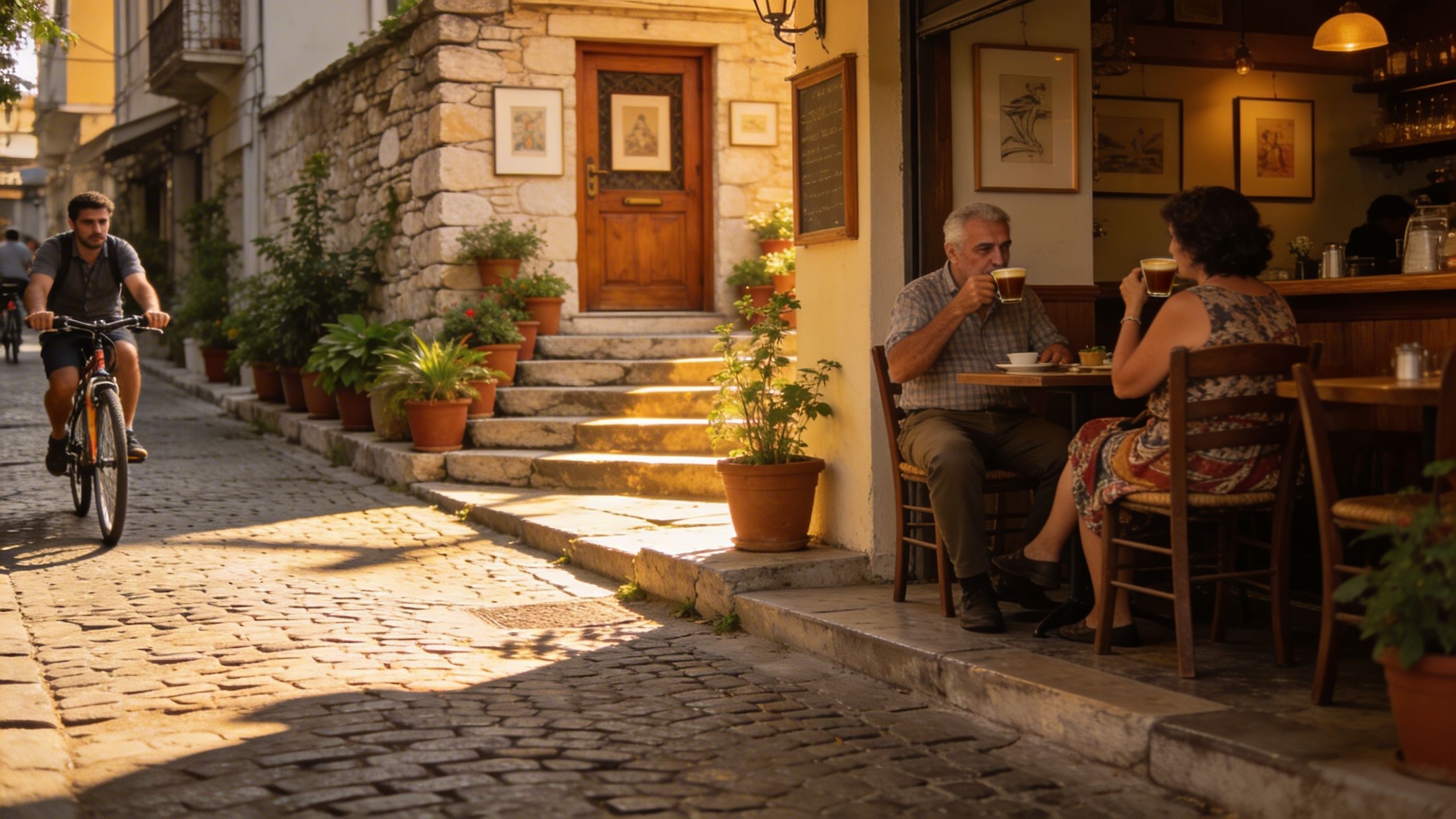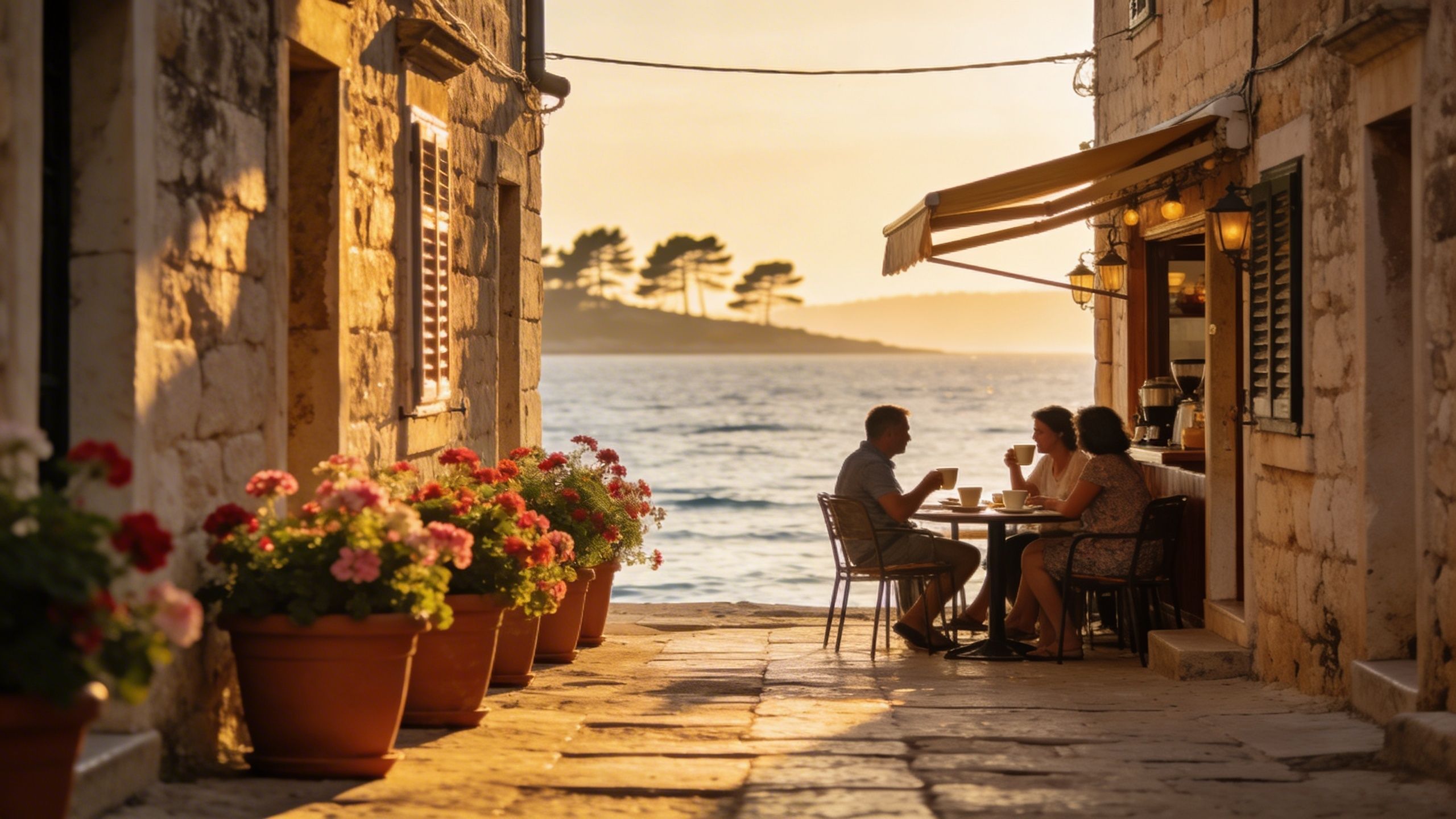Life-First Due Diligence in Croatia
Fall in love with Croatia’s markets, sea and seasonal rhythms — then protect that life with place-specific due diligence, local permits and stewardship-backed choices.
I remember my first summer in Split: the market stalls at Pazar filling with figs and smoked cheese, fishermen mending nets by the Riva, and a neighbor insisting that an old stone house on a quiet side street was worth every euro because of its morning light. That warm, grounded rhythm — sun, sea, village market and ritual espresso — is what draws so many of us to Croatia. But the romance can blind buyers to real, place-specific steps that protect both lifestyle and investment. This guide pairs the sensory life of coastal towns and inland hills with research-backed, practical due-diligence advice so you can fall in love well informed.
Living the Croatian life: small rhythms, big textures
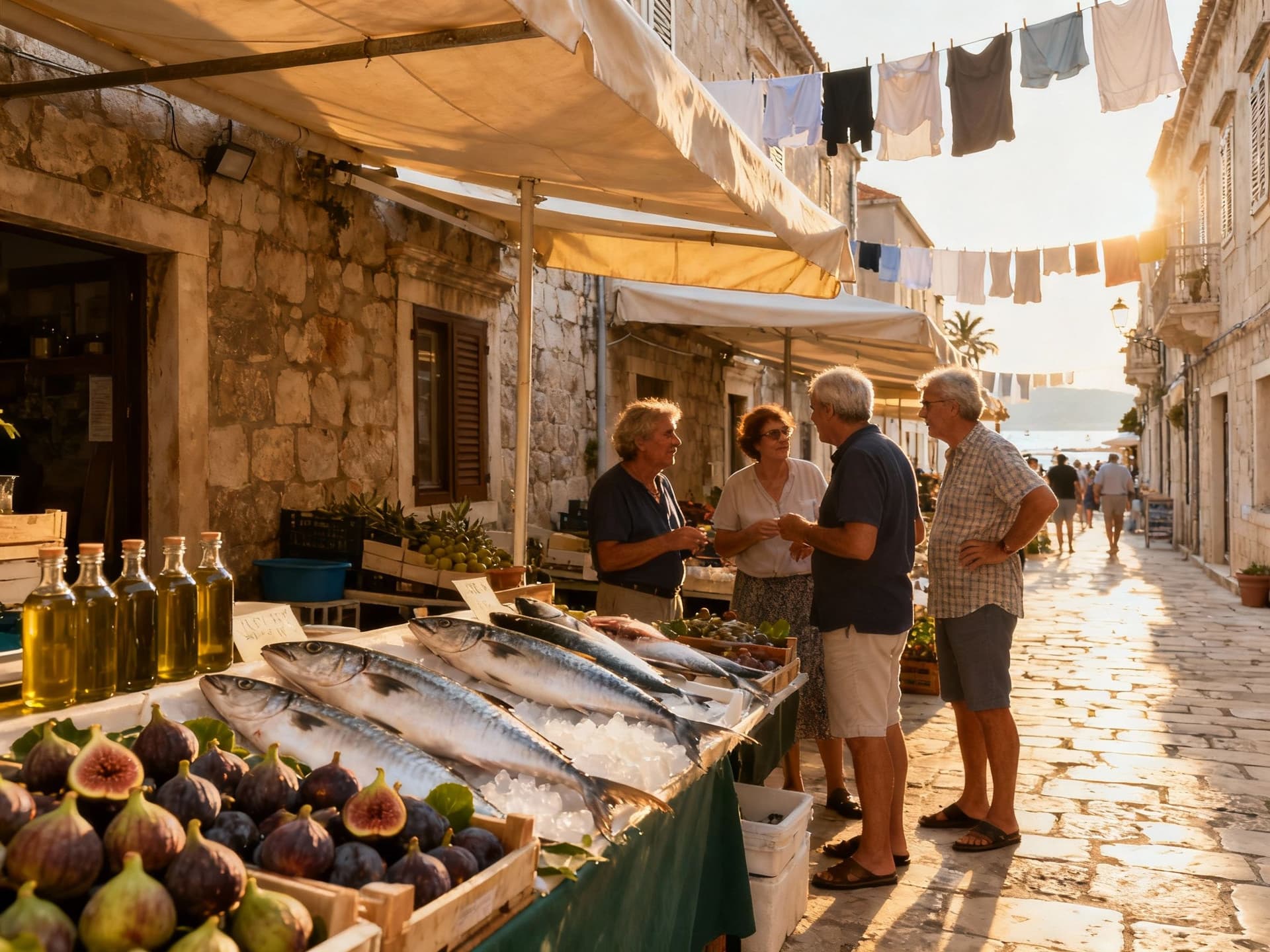
Picture weekday mornings in Zagreb: courtyards warming, bakeries selling warm kifle, and office workers pausing for a single espresso. Now imagine weekends on the Dalmatian coast — beaches at Zlatni Rat, aperitifs on Hvar's harbor, and dinner that stretches under grape‑leaf pergolas. Croatia’s day-to-day is stitched from market rhythms, outdoor living and a deep connection to seasonal food and sea. Those lifestyle threads should guide property decisions: proximity to markets, orientation for sun and breeze, and community fabric matter as much as square metres.
Neighborhood spotlight: Split’s Veli Varoš and the Riva’s quieter streets
Veli Varoš — a tangle of stone lanes beneath Marjan Hill — feels lived-in rather than staged. Locals buy coffee at Kavana Dalmacija, fishermen sell at the small harbour, and terraces hum at dusk. For buyers who want coastal life without tourist noise, these pockets offer authentic daily scenes and morning shade. Practically, that also means older stone houses often need updated plumbing and insulation, so plan for gentle restorations that honor materials while improving comfort.
Food & ritual: markets, konobas and the seasonal calendar
The market pulse — fresh shellfish at morning markets, chestnuts in autumn, olives pressed in winter — shapes how neighbourhoods feel across seasons. These seasonal cycles also influence property demand: coastal towns surge in summer and quieten off‑season, while inland towns offer steadier local life year-round. Recent market reports show coastal price pressure, particularly in Istria and Dalmatia, so weigh lifestyle wants against pricing trends and seasonal occupancy when choosing a location. Sustainable buyers often prefer properties with gardens or terraces for year-round connection to food and landscape.
- Marketable lifestyle highlights: visit a morning fish market in Split; hike Marjan Hill before sunrise; sip coffee on Dubrovnik’s Stradun at dusk; find an Istrian truffle fair in autumn; attend a neighborhood konoba dinner for slow-food traditions; explore Krk’s quieter coves off-season.
Making the move: practical considerations that protect the dream
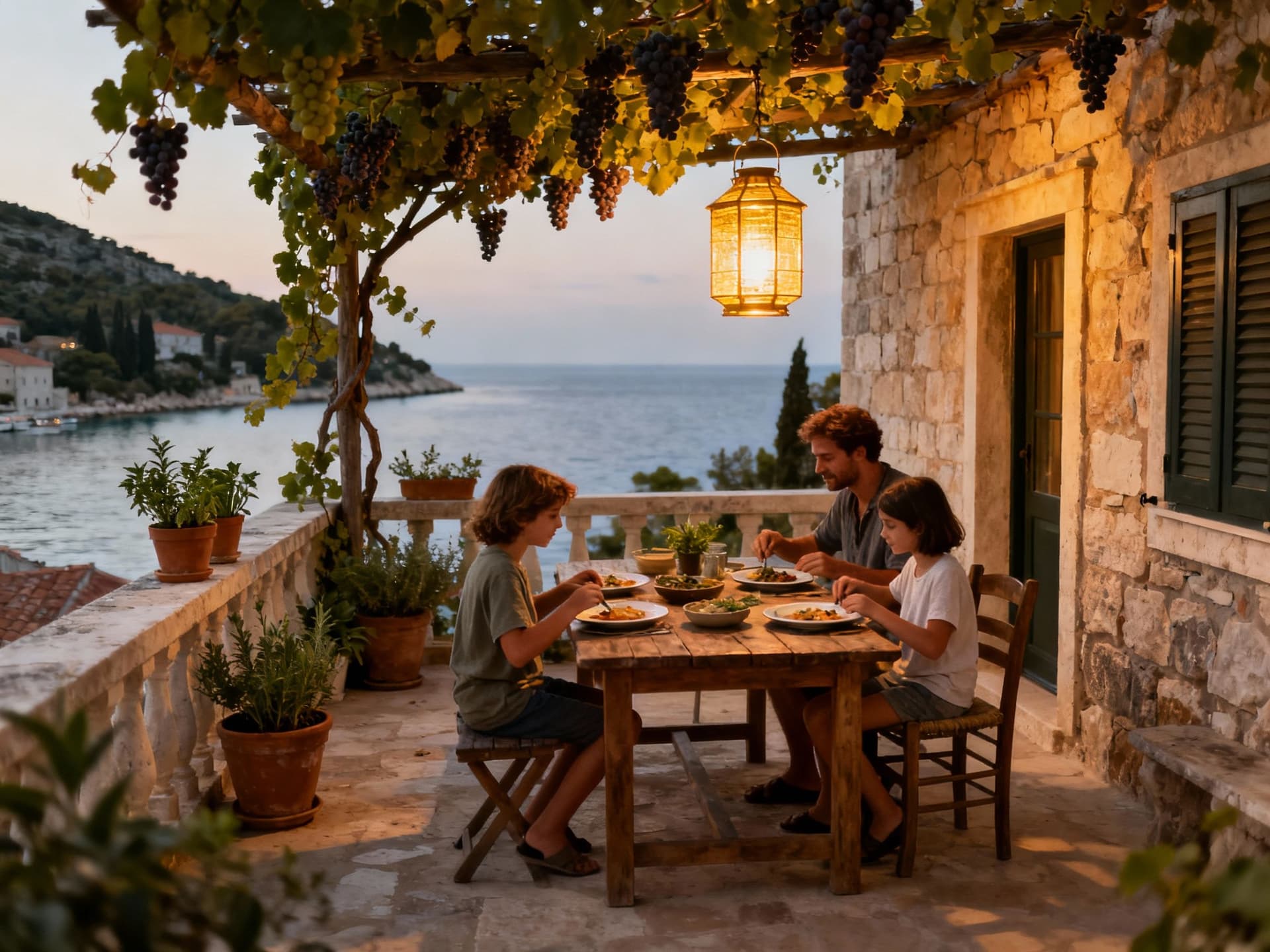
Once the daydream includes keys, contracts and renovation timelines, real steps replace romantic imagery. Croatian rules treat EU, EEA and Swiss citizens differently from third‑country nationals; non‑EU buyers often need Ministry of Justice consent and a Croatian OIB, and agricultural land remains tightly regulated. Colliers and local legal specialists note that while prices are rising in coastal hotspots, transaction volumes have sometimes slowed — a useful negotiation lever if you time viewings outside peak season. Treat permits, land registry checks and reciprocity rules as part of the lifestyle equation: they determine if your vision is legally possible and sustainably manageable.
Property types and what they mean for everyday life
Stone townhouses near the sea offer endless atmosphere — terraces, thick walls and microclimates — but often need updated systems: insulation, wastewater treatment and efficient heating. New builds bring modern efficiencies and easier permitting for solar or heat‑pump systems, yet can lack the immediate character of old stone. Colliers’ market notes show strong demand for quality projects; for sustainable buyers, weigh embodied carbon of renovation versus the lifecycle benefits of retrofitting traditional materials with modern eco‑systems.
Working with local experts who protect your lifestyle
A local notary, lawyer and agency that understand both the everyday life you want and Croatia’s legal nuances are essential. Lawyers handle OIB registration, Ministry consent for non‑EU buyers, and thorough land‑registry checks; agencies with local networks can arrange off‑season viewings and introduce you to communities where sustainable living is practiced. The most valuable experts translate place-based values — morning markets, communal olive harvests, municipal building limits — into purchase conditions that preserve the life you imagine.
- Practical due‑diligence steps with lifestyle sense: 1) Secure an OIB and confirm reciprocity or Ministry consent if you’re non‑EU. 2) Commission a detailed land registry and encumbrance search to avoid right‑of‑way surprises. 3) Survey utilities, septic status and coastal construction setbacks — these shape daily comfort. 4) Check local zoning and protected-area restrictions; some beautiful coves lie inside conservation zones. 5) Get a building‑condition report that includes insulation, roof and structural checks and an estimate for eco‑upgrades like solar or heat pumps.
Insider knowledge: what expats wish they’d known
Expats often tell us the same few truths: community matters more than proximity to the sea, off‑season rhythms reveal steady neighbours rather than tourists, and modest investments in insulation and rainwater capture change daily life more than a marble countertop. Cultural rhythms — long lunches, late dinners, town feast days — structure neighborhood life. These intangible elements influence where you feel at home and how a property will be used throughout the year, so ask locals about seasonality, festivals and neighbourly expectations before you sign.
Language, community and municipal reality
Learning a few phrases and showing up for local events opens doors: neighbours will tell you about roofers, olive presses and the hidden coves that make a house sing. Municipal offices often operate on local timetables, and permit timelines can lengthen during summer holidays. Investropa and local legal guides note Ministry approval windows for non‑EU buyers; plan visits and paperwork around these administrative rhythms to avoid months of paused expectations.
Long‑term stewardship: making a home that honours place
Think beyond purchase: rainwater collection, native plant gardens, and sensitive restoration of stone facades help properties age gracefully in Croatia’s climate. Market analysis suggests coastal price growth remains strong, so stewardship that reduces operating costs and supports biodiversity also protects value. Whether you opt for a renovated konoba or a new eco‑project, prioritize systems that deepen your daily connection to land and community while lowering running costs over time.
- Red flags and quick checks before you bid: unclear land registry entries; coastal setbacks ignored in drawings; properties without documented access rights; missing connection permits for water or sewage; offers that pressure for immediate payment without notarised contracts.
If Croatia feels like a possibility, start with small, sensory trips out of season: taste local markets, meet neighbours at konobas, and visit municipal offices to sense procedural timing. Pair those visits with a local lawyer and an agency who live the seasons and understand reciprocity rules and permit timelines. When romance and rigour meet, you don’t just buy a house — you join a place with care and clarity.
Practical next steps: request an OIB, commission a land registry search, line up a local lawyer for Ministry consent if needed, and plan a viewing in shoulder season to see daily life away from tourists. If you’d like, Moss & Hearth can introduce agencies and legal partners who specialise in sustainable retrofits and community‑centred buying in Croatia. The right team makes sure your morning light stays yours for decades.
Dutch property strategist who helped 200+ families find sustainable homes in southern Europe; expert in legal pathways and long-term stewardship.
